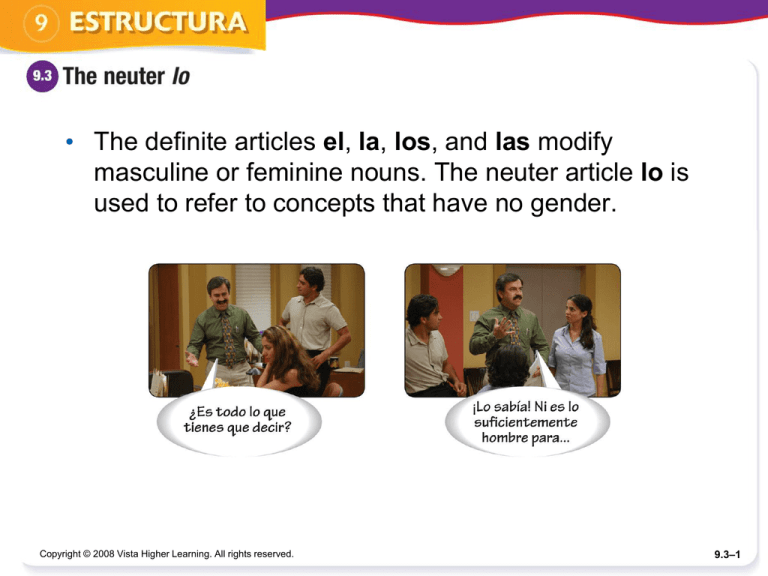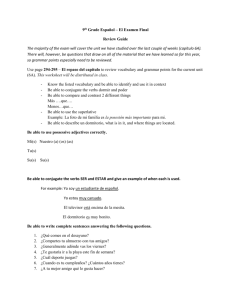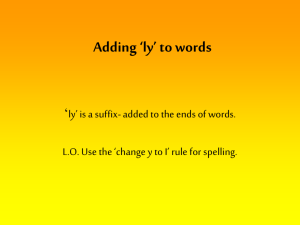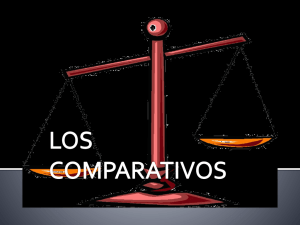
• The definite articles el, la, los, and las modify
masculine or feminine nouns. The neuter article lo is
used to refer to concepts that have no gender.
Copyright © 2008 Vista Higher Learning. All rights reserved.
9.3–1
• In Spanish, the construction lo + [masculine singular
adjective] is used to express general characteristics
and abstract ideas. The English equivalent of this
construction is the + [adjective] + thing.
Cuando leo las noticias, lo difícil es diferenciar entre el hecho y
la opinión.
When I read the news, the difficult thing is to differentiate
between fact and opinion.
Lo bueno de ser famosa es que me da la oportunidad de
cambiar el mundo.
The good thing about being famous is that it gives me the chance
to change the world.
Copyright © 2008 Vista Higher Learning. All rights reserved.
9.3–2
• To express the idea of the most or the least, más and
menos can be added after lo. Lo mejor and lo peor
mean the best/worst (thing).
Para ser un buen reportero, lo más
importante es ser imparcial.
¡Aún no te he contado lo peor
del artículo!
To be a good reporter, the most
important thing is to be unbiased.
I still haven’t told you about the
worst part of the article!
Copyright © 2008 Vista Higher Learning. All rights reserved.
9.3–3
• The construction lo + [adjective or adverb] + que is
used to express the English how + [adjective]. In these
cases, the adjective agrees in number and gender with
the noun it modifies.
lo + [adjective] + que
lo + [adverb] + que
¿No te das cuenta de lo bella que
eres, María Fernanda?
Recuerda lo bien que te fue el
año pasado en su clase.
María Fernanda, don’t you realize
how beautiful you are?
Remember how well you did
last year in his class.
Copyright © 2008 Vista Higher Learning. All rights reserved.
9.3–4
The phrase lo + [adjective or adverb] + que may be replaced by
qué + [adjective or adverb].
No sabes qué difícil es hablar con él.
You don’t know how difficult it is to talk to him.
Fíjense en qué pronto se entera la prensa.
Just think about how soon the press will find out.
Copyright © 2008 Vista Higher Learning. All rights reserved.
9.3–5
• Lo que is equivalent to the English what, that, or which.
It is used to refer to an abstract idea, or to a previously
mentioned situation or concept.
¿Qué fue lo que más te gustó de tu viaje a Uruguay?
What was the thing that you enjoyed most about your trip to Uruguay?
Lo que más me gustó fue el Carnaval de Montevideo.
The thing I liked best was the Carnival of Montevideo.
Copyright © 2008 Vista Higher Learning. All rights reserved.
9.3–6







